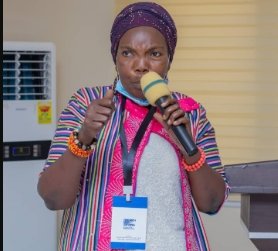Participants at a post-election forum have renewed calls for sustained electoral and institutional reforms, with particular emphasis on gender inclusion and the active involvement of persons who influence community, including traditional and religious leaders.The event formed part of post-2024 elections review of Ghana's five northern regions - Upper East, Upper West, Savanna, North East, and Northern.The forum, which was held at the University for Development Studies (UDS), Tamale Campus, formed part of post-2024 elections review and brought together civil society, traditional leaders, and development partners.The forum was organised by the Institute of Democratic Governance (IDEG), and Norsaac, a gender-based advocacy organisation, with funding from the European Union.A women's rights advocate and Executive Director of Savannah Women Integrated Development Agency (SWIDA-GH), Hajia Alima Sagito, noted that the role of community leadership was crucial in advancing the implementation of the Affirmative Action (Gender Equality) Law 2024.Hajia Sagito challenged the persistent narrative that women lack the capacity to lead, asserting that given equal access to opportunities and resources, women could deliver and produce results."It is not about whether the woman has the quality.
Give her the opportunity and the right support systems, and she will deliver.
Women will pull their weight if they are given the chance," she stated.Hajia Sagito further noted that while traditional leaders had long been gatekeepers in local governance, religious leaders, particularly Imams and pastors held immense influence and must use their platforms to champion gender equity."Our traditional leaders are essential, but our religious leaders are revered.
If they go to the mosque or church advocating for the Affirmative Action Law, it will greatly increase public awareness and acceptance," she emphasised.The event concluded with strong consensus from participants on the need for broad-based advocacy, early reform implementation, and grassroots engagement in order to ensure that the gains made through legislation are translated into real representation and impact. BY RAISSA SAMBOU

